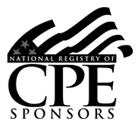
View Details/Register
View Details/Register
View Details/Register

This Ethics webinar does NOT qualify for IRS CE credit.
CPA - small firm
CPA - medium firm
CPA - large firm
The ability to exercise effective decision making and maintain objectivity on a consistent basis is a difficult task even for those who have the necessary desire and expertise. Further, objectivity is a key feature of the AICPA’s Code of Professional Conduct. Researchers in a variety of disciplines, including economics and psychology, have applied a scientific approach to studying decision making and objectivity over the past 35 years. From this body of knowledge, experts in psychology and cognition now understand that we are all “hard-wired” to fall into a set of predictable, systematic judgment and decision traps and biases. Fortunately, through an awareness of the common pitfalls, and through an understanding of effective decision processes based in cognitive psychology, research suggests that people can significantly improve the objectivity with which they make judgments and decisions.
Learning Objective:
- Identify key aspects of the psychology of decision-making, including how different biases and frames impact judgment and objectivity.
Note: There is no handout for this class.
|
Self-Study Course Instructions: FOR DOCUMENT-BASED COURSES Download the course document(s) (below) and follow prompts contained in the document. FOR RECORDED COURSES WITH VIDEO Download any course document(s) (below) which may include handouts, glossary, transcripts, etc. Follow any prompts contained in the documents to help you complete the course. Most documents are searchable. |
QUESTION 1: 16:00 minutes
QUESTION 2: 38:00 minutes
QUESTION 3: 50:00 minutes
QUESTION 4: 1:03:00 minutes
QUESTION 5: 1:20:00 minutes
QUESTION 6: 2:00:00 minutes
- CPAacademy self-study courses are online.
- The self-study format allows you to a) access the material online 24/7 and b) study at your own pace.
- Per NASBA guidelines, you have one year from date of purchase to complete each program.
- Complete your final exam at any time and get graded instantly. You can retake the exam at no additional charge (unlimited attempts).
- Print your own certificate of completion on the spot upon passing the exam.
- Grading policies: a) courses have a minimum passing score 70% b) test takers will not be provided feedback on failed exams.
- Upon achieving a passing score, test takers will be notified of the correct answers to the questions missed.

Doug F. Prawitt, Ph.D., CPA
Doug Prawitt, Ph.D., CPA and William Tayler, Ph.D. CMA
Professor
[email protected]
(801) 422-2351
Doug earned his Ph.D. at the University of Arizona and is the LeRay McAllister/Deloitte Professor of Accountancy at Brigham Young University. His research and teaching in BYU’s graduate accounting and MBA programs focus on auditing and professional judgment. Doug’s research has been published in premier academic journals, including The Accounting Review, Journal of Accounting Research, Contemporary Accounting Research, Organizational Behavior & Human Decision Processes, Auditing: A Journal of Practice & Theory, Behavioral Research in Accounting, and others. He has also published award-winning articles in the Journal of Accountancy, Internal Auditor, and CPA Journal and has co-authored two leading auditing textbooks. Doug has won several research, teaching, and "best research paper" awards, as well as BYU’s 2006 Award for Distinction in Graduate Education, the Auditing Section’s 2014 Innovation in Auditing and Assurance Education Award, the 2013 AAA/Deloitte Wildman Medal Award recognizing the publication over five years most likely to impact the public accounting profession positively, the 2016 BYU Marriott School Outstanding Faculty Award, and the 2016 AAA Outstanding Accounting Educator Award. Doug has chaired BYU’s equivalent of a faculty senate and BYU’s university-level promotion and tenure committee. He is active in the profession, having served a three-year term as a member of the AICPA’s Auditing Standards Board. He currently serves as a COSO’s Executive Board member, which just released a substantive revision of its landmark 2004 Enterprise Risk Management—Integrated Framework. Doug has served as an expert witness in high-profile auditing litigation cases. He has consulted with various large and small professional services firms on issues ranging from materiality and audit sampling to analytical procedures and professional judgment.

William Tayler, Ph.D., CMA
Brigham Young University
Professor
[email protected]
(801) 422-5972
Bill earned his Ph.D. and master’s degrees at Cornell University and is the Warnick Deloitte Touche Fellow and a professor of accountancy at Brigham Young University, one of the top-ranked accounting programs in the world. Bill is an internationally renowned researcher on the judgment and decision-making of accounting and business professionals. He has presented his research as an invited speaker at universities and scientific conferences worldwide and has won several research awards. Bill has also taught at Cornell University and Emory University, and in BYU’s Executive MBA program, and has received multiple teaching awards. Bill is a Certified Management Accountant specializing in performance measurement, the assignment of decision rights, and incentive compensation. His work has been published in top research journals, including Accounting Horizons, Accounting, Organizations and Society, The Accounting Review, Journal of Accounting Research, Journal of Behavioral Finance, Journal of Finance, Review of Financial Studies, and Strategic Finance, and he is a co-author on two popular accounting textbooks. Bill currently serves on the editorial boards of The Accounting Review, Management Accounting Research, and Accounting, Organizations, and Society, and as a director of the Institute of Management Accountants Research Foundation.


NASBA Approved
CPAacademy.org (Sponsor Id#: 111889) is registered with the National Association of State Boards of Accountancy (NASBA) as a sponsor of continuing professional education on the National Registry of CPE Sponsors. State boards of accountancy have final authority on the acceptance of individual courses for CPE credit. Complaints regarding registered sponsors may be submitted to the National Registry of CPE Sponsors through its website: www.nasbaregistry.org.
CPAacademy.org 1685 S. Colorado Blvd, Suite #205, Denver, CO 80222



